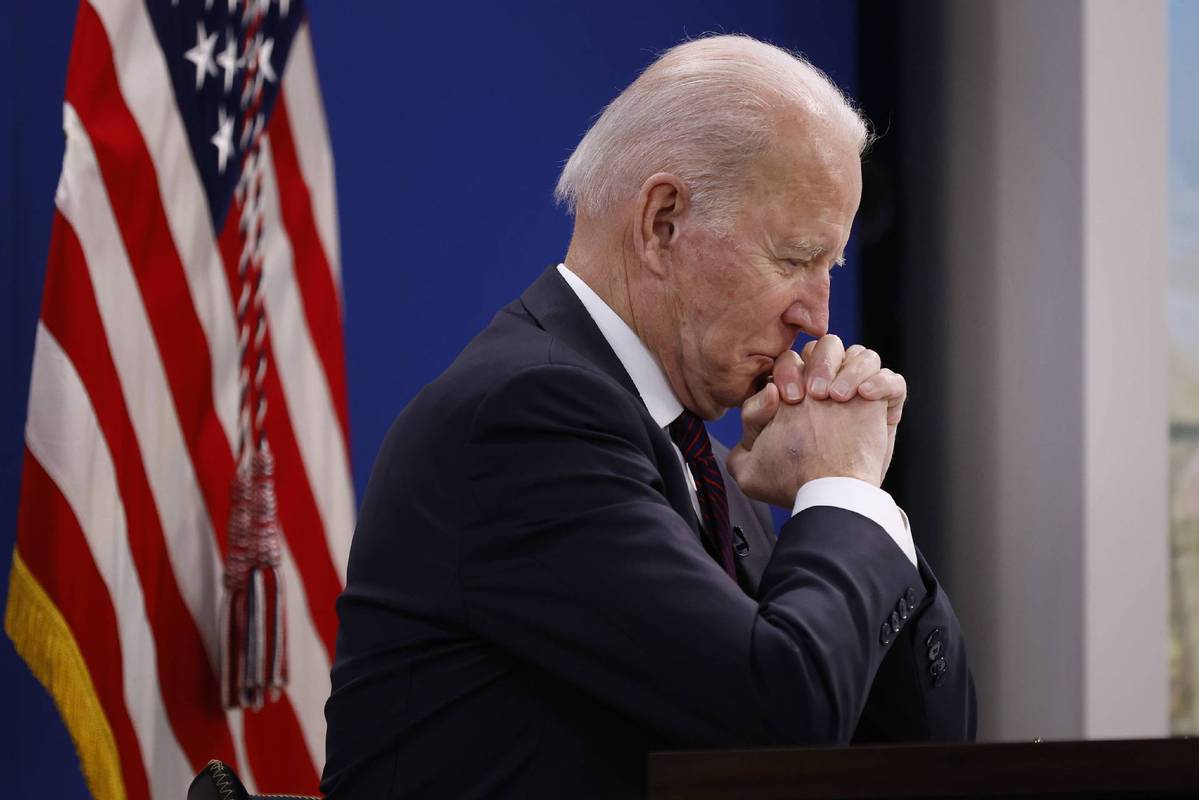Mistakes, constraints mark Biden's first year, analysts say
By YIFAN XU in Washington and CHEN YINGQUN in Beijing | CHINA DAILY | Updated: 2022-01-21 07:14

Analysts in the United States said on Wednesday that President Joe Biden should have done things differently in his first year in office, and that, despite constraints, most of his political "wounds" were of his own doing.
During a Brookings Institution webinar with the theme "Biden's first year: Successes, failures, and what lies ahead", William Galston, deputy director of the Center for Effective Public Management at Washington-based Brookings, said that "most of President Biden's wounds have been self-inflicted".
"President Biden knew exactly what the legislative numbers of margins were the day he took office (such as a 50-50 Senate), and the job of a leader is to function effectively within constraints, not to pretend that they don't exist," said Galston.
He said that the American Rescue Plan Act-which was in response to the COVID-19 pandemic and signed into law by Biden in March last year-was "about twice as large as it should have been" and, as forecast by many economists, was "inflationary".
According to Galston, on the Build Back Better plan and two voting rights bills, Biden knew early on that the legislation would pass with votes from Democrats only, "so negotiations within the Democratic Party were absolutely critical". However, Galston said, Biden "unwisely subcontracted those negotiations to the congressional leadership, which proved unequal to the task".
Regarding the pandemic, Galston said the administration was "putting all the eggs in the vaccine basket, forgetting about testing, forgetting about adequate stocks of high-quality masks-N95 and KN95 masks".
On inflation, the administration "first denied it was happening, then said it was in scattered areas, and then said it was transitory, and finally after almost a year, got around to admitting that it was a real problem", Galston said. So Americans "were getting angry that the administration seems not to be focusing on what they could see right in front of them", he added.
"I think the Biden administration made serious mistakes during its first year and needs a course correction urgently," Galston said.
Rashawn Ray, a senior fellow in governance studies at Brookings, said on Wednesday, the eve of the first anniversary of Biden's inauguration, that "this is about broken promises and failed expectations". Ray said Biden didn't get enough changes through Congress, such as voting rights measures and police reform.
He said Biden's scorecard "should have Democrats worried going into the midterm elections (in November) and even moving forward".
Sarah Binder, also a senior fellow in governance studies, listed four significant constraints under which Biden and Democrats have pursued their campaign pledges and policy agendas: "tough conditions on the slimmest of majorities in Congress", "a lot of partisan team play", COVID-19, and "a very partisan approach" at the Supreme Court.
Binder said the White House should prepare "as if there will be more variants" and "use whatever power you have (at) the federal government to tackle the problem".
Biden acknowledged that the pandemic has left people in the US exhausted and demoralized, but said at a news conference on Wednesday that he has "outperformed" expectations in dealing with it, though poll numbers regarding his performance are sagging.
Yuan Zheng, deputy director of the Chinese Academy of Social Sciences' Institute of American Studies, said that Biden's first year has been quite difficult. Yuan noted that Biden took office at a chaotic time and faced many challenges, such as huge political divisions, a severe pandemic and slow economic recovery.
Biden has focused on domestic issues, but his proposals for spending trillions of dollars on COVID-19 relief, infrastructure and new social programs have proved controversial, Yuan said.
"Moreover, due to the severe political conflicts between the two parties, much of Biden's legislative agenda cannot be passed by Congress and can only be implemented through executive orders," he said.
In foreign affairs, Biden has made progress, including mending relations with Western allies and rejoining some multilateral mechanisms, but it is not easy in the short term to repair the damage to the international image of the US caused by the administration of Donald Trump, Yuan said.
As 2022 will see US midterm elections, the fighting between the Democratic and Republican parties will be more severe, which will make this year "even more difficult" for Biden, Yuan said.
"In the next three years, the Biden administration may not be able to achieve progress, whether in addressing long-standing political and social problems domestically or restoring US leadership abroad," Yuan said.
Wu Xinbo, dean of Fudan University's Institute of International Studies, said that Biden's team has been too ambitious in setting targets and failed to make an adequate estimate of the consequences. For instance, in diplomatic ties, the abrupt withdrawal of US troops from Afghanistan left a messy situation.
"More important, in the current world, it will not work for the US to manage its relations with other countries with a superior attitude," he said.
Moreover, the US faces many long-term problems, such as illegal immigration and police violence, and such problems cannot be solved in a short time, Wu said.
























